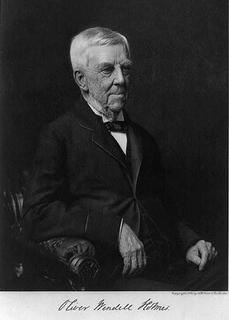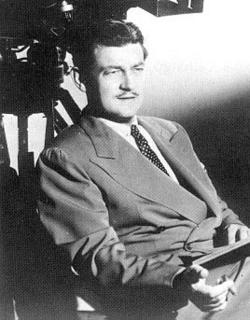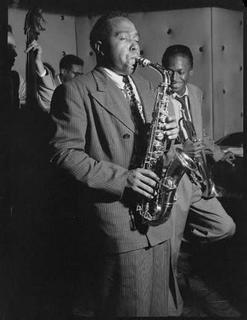 Oliver Wendell Holmes the elder (1809 – 1894)
Oliver Wendell Holmes the elder (1809 – 1894) American writer
He was one of the best regarded American poets of the 19th century.

Ingrid Bergman(1915 – 1982)
Academy Award-winning Swedish actress
The most beautiful woman ever to appear on the screen, imho.
Academy Award-winning Swedish actress
The most beautiful woman ever to appear on the screen, imho.
from Wikipedia:
Ingrid Bergman first came to fame when she starred as Ilsa Lund with Humphrey Bogart in the 1942 's Casablanca.
She received her first Academy Award nomination for Best Actress for the film, For Whom the Bell Tolls (1943). The following year she won Best Actress for Gaslight (1944). She received a third consecutive nomination for Best Actress with her performance in (1945). She would receive another Best Actress nomination for The Bells of St. Mary'sJoan of Arc (1948).
Alfred Hitchcock who directed her in Notorious and Spellbound was known to be obsessed about her.
With her starring role in (1956)'s Anastasia, Bergman won Best Actress for a second time.
She would continue to alternate between performances in American and European films. She received her third Academy Award (and first for Best Supporting Actress) for her performance in Murder on the Orient Express (1975), but she publicly declared at the Academy Awards telecast that year that the award rightfully belonged to Italian actress Valentina Cortese.
In 1978 she played in Ingmar Bergman's Autumn Sonata (also known as Höstsonaten) for which she received her seventh Academy Award nomination and made her final performance on the big screen. It is considered to be among her best performances.
She could speak Swedish, German, French, English and Italian fluently, which caused fellow actor John Gielgud's remark, "She speaks five languages, and can't act in any of them", which, given her prodigious talent, must have been a joke.
Ingrid Bergman was honored posthumously with an Emmy Award for Best Actress in 1982 for the television mini-series A Woman Called Golda, about the late Israeli prime minister Golda Meir.
Ingrid Bergman first came to fame when she starred as Ilsa Lund with Humphrey Bogart in the 1942 's Casablanca.
She received her first Academy Award nomination for Best Actress for the film, For Whom the Bell Tolls (1943). The following year she won Best Actress for Gaslight (1944). She received a third consecutive nomination for Best Actress with her performance in (1945). She would receive another Best Actress nomination for The Bells of St. Mary'sJoan of Arc (1948).
Alfred Hitchcock who directed her in Notorious and Spellbound was known to be obsessed about her.
With her starring role in (1956)'s Anastasia, Bergman won Best Actress for a second time.
She would continue to alternate between performances in American and European films. She received her third Academy Award (and first for Best Supporting Actress) for her performance in Murder on the Orient Express (1975), but she publicly declared at the Academy Awards telecast that year that the award rightfully belonged to Italian actress Valentina Cortese.
In 1978 she played in Ingmar Bergman's Autumn Sonata (also known as Höstsonaten) for which she received her seventh Academy Award nomination and made her final performance on the big screen. It is considered to be among her best performances.
She could speak Swedish, German, French, English and Italian fluently, which caused fellow actor John Gielgud's remark, "She speaks five languages, and can't act in any of them", which, given her prodigious talent, must have been a joke.
Ingrid Bergman was honored posthumously with an Emmy Award for Best Actress in 1982 for the television mini-series A Woman Called Golda, about the late Israeli prime minister Golda Meir.
 Preston Sturges (1898-1959)
Preston Sturges (1898-1959)American film director & screenwriter
from Wikipedia:
Sturges received two screenwriting Oscar nominations in the same year (1944) , for "Hail the Conquering Hero" and "The Miracle of Morgan's Creek."
Four of his films were chosen among the American Film Institute's 100 funniest movies: "Miracle of Morgan's Creek, "The Lady Eve," "Sullivan's Travels" and "The Palm Beach Story." Their combination of sentiment and cynicism has kept them fresh for today's audiences.
Sturges took the screwball comedy format of the 1930s to another level, writing dialogue that, heard today, is often surprisingly naturalistic, mature, and ahead of its time, despite the farcical situations. It is not uncommon for one of Sturges' actors to deliver an exquisitely turned phrase and take an elaborate pratfall within the same scene. A love scene between Henry Fonda and Barbara Stanwyck in "The Lady Eve" was enlivened by a horse, who repeatedly poked his nose into Fonda's head.
He won the first Academy Award ever given for Writing - Original Screenplay for the "Great McGinty" script.
Sturges received two screenwriting Oscar nominations in the same year (1944) , for "Hail the Conquering Hero" and "The Miracle of Morgan's Creek."
Four of his films were chosen among the American Film Institute's 100 funniest movies: "Miracle of Morgan's Creek, "The Lady Eve," "Sullivan's Travels" and "The Palm Beach Story." Their combination of sentiment and cynicism has kept them fresh for today's audiences.
 Charlie Parker (1920-1955)
Charlie Parker (1920-1955)American jazz musician
The Absolute Master of the saxophone
Charles "Yardbird" Parker was an amazing saxophonist who gained wide recognition for his brilliant solos and innovative improvisations. He was, without a doubt, one of the most influential and talented musicians in jazz history.
A founding figure of bebop, Parker's innovative approach to melody, rhythm and harmony exerted an incalculable influence on jazz. Several of Parker's songs have become standards of the repertoire (listen).
A founding figure of bebop, Parker's innovative approach to melody, rhythm and harmony exerted an incalculable influence on jazz. Several of Parker's songs have become standards of the repertoire (listen).
In 1982, he achieved his long-cherished ambition of completing a biopic of the life of the great Mahatma Gandhi, Gandhi (1982), earning him the Best Director Oscar.

No comments:
Post a Comment